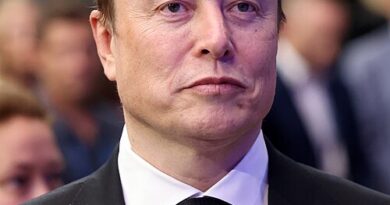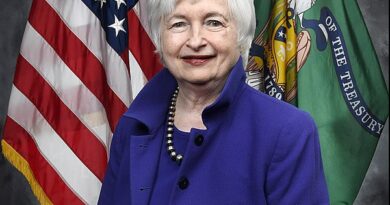Musk Pay Package Rebuffed by Norway’s $1.7 Trillion Wealth Fund
Norway’s sovereign wealth fund, one of Tesla’s largest investors, has decided to vote against Elon Musk’s proposed $1 trillion performance-based pay package. This move highlights growing concerns over executive compensation in the tech and automotive sectors. The decision comes just before Tesla’s annual general meeting on Thursday.
The fund, managed by Norges Bank Investment Management, holds a significant stake in the electric vehicle giant. It praised Musk’s visionary leadership but expressed worries about the package’s massive size. Officials noted potential shareholder dilution and the risks tied to over-reliance on one key individual.
This Musk pay package proposal stems from Tesla’s board recommending a renewal of Musk’s 2018 compensation plan. That original deal, already the largest in corporate history, granted Musk stock options tied to ambitious performance milestones. Tesla argues it has driven remarkable growth, with the company’s market cap soaring past $1 trillion at times.
Background on the Musk Pay Package
The 2018 Musk pay package awarded Musk zero salary but vast equity grants if Tesla hit specific revenue and profitability targets. Musk achieved all 12 milestones, earning options worth about $56 billion at the time, though values fluctuate with stock prices. A Delaware court voided it in 2024 over conflicts of interest, prompting Tesla to seek shareholder re-approval.
Under the new proposal, the Musk pay package could reach up to 20% more shares, potentially valued at over $1 trillion if Tesla’s stock continues its upward trajectory. Proponents say this aligns Musk’s incentives with long-term shareholder value. Critics, however, see it as excessive even for a transformative CEO.
Tesla shareholders previously approved similar structures, but institutional investors like Norway’s fund are pushing back harder now. This reflects broader scrutiny on CEO pay amid economic pressures and income inequality debates. The Musk pay package has become a flashpoint in discussions about corporate governance.
Norway Fund’s Specific Concerns
Norges Bank Investment Management oversees $1.7 trillion in assets, making it a heavyweight in global investing. Its opposition to the Musk pay package cites three main issues: the award’s sheer magnitude, the dilution effect on existing shares, and the ‘key person risk’ of tying so much to Musk alone.
Dilution means new shares for Musk would reduce the ownership percentage of other investors. For a fund like Norway’s, this erodes value in their holdings. They also worry that without safeguards, Tesla’s success hinges too heavily on Musk, who juggles multiple ventures like SpaceX and xAI.
The fund plans to engage in ‘constructive dialogue’ with Tesla post-vote. This stance aligns with their responsible investment principles, which emphasize fair pay without excessive risk. Other investors may follow suit, influencing the final tally at the AGM.
Impact on Tesla and the Market
News of the Norway fund’s rejection of the Musk pay package led to a slight dip in Tesla’s stock price on Monday. Shares fell about 1.2% in early trading, reflecting investor unease. However, Tesla’s stock has been volatile, up over 20% year-to-date amid EV demand recovery.
This development follows recent tech earnings volatility, where CEO compensation debates have intensified. For Tesla, approval of the Musk pay package is crucial to retain Musk’s focus, but rejection could lead to legal battles or renegotiations. Analysts predict a close vote, with retail investors likely supporting Musk.
Beyond Tesla, this Musk pay package saga sets precedents for Big Tech compensation. Companies like Apple and Google face similar scrutiny on executive pay tied to stock performance. It underscores the tension between rewarding innovation and protecting shareholder interests.
Expert Opinions on the Musk Pay Package
Corporate governance experts largely support Norway’s position. Nell Minow, a veteran analyst, called the $1 trillion figure ‘astronomical’ and argued it lacks proportionality. She points out that even Musk’s past package exceeded norms by 300 times the median S&P 500 CEO pay of $16 million.
On the other hand, Tesla bulls like Wedbush’s Dan Ives defend the structure. Ives argues the Musk pay package has fueled Tesla’s 1,000% stock growth since 2018, far outpacing peers. He warns that blocking it could distract Musk, harming innovation in autonomous driving and AI.
Academic views vary. A Harvard Business Review study shows performance-based pay boosts short-term results but may encourage risk-taking. For Tesla, this fits Musk’s aggressive style, but experts like those at the Economic Policy Institute caution against ‘pay for luck’ in volatile markets.
Stakeholder Perspectives
Retail Tesla investors, often vocal on social media, overwhelmingly back the Musk pay package. Many see Musk as irreplaceable, crediting him for Tesla’s disruption of the auto industry. Platforms like Reddit’s r/teslainvestorsclub buzz with support, viewing the package as essential motivation.
Institutional investors, representing pension funds and endowments, are more cautious. Besides Norway, entities like Vanguard and BlackRock have expressed reservations, though their votes remain undisclosed. Employee stakeholders worry about dilution affecting stock options, a key part of Tesla’s compensation.
From a global lens, Norway’s fund represents ethical investing trends. As a steward of oil revenues pivoting to green assets, it prioritizes sustainability. Rejecting the Musk pay package signals that even EV pioneers must adhere to governance standards.
Historical Context of CEO Compensation
The Musk pay package isn’t isolated; it’s part of a trend in Silicon Valley where equity trumps salary. Compare it to Oracle’s Larry Ellison, whose packages totaled billions over decades. Yet Musk’s scale dwarfs these, adjusted for company size.
In the auto sector, traditional CEOs like GM’s Mary Barra earn around $30 million annually. Tesla’s structure reflects its startup-like ethos, but maturity demands evolution. The 2018 package’s court invalidation highlighted flaws in board independence, a lesson for the current Musk pay package vote.
Globally, Norway’s intervention mirrors European norms on pay caps. The EU’s shareholder rights directive encourages ‘say on pay’ votes, influencing U.S. practices. This Musk pay package debate could accelerate convergence in international corporate standards.
Future Implications and What to Watch
If approved, the Musk pay package cements Tesla’s high-reward culture, potentially boosting stock amid Robotaxi and Optimus robot launches. Rejection might force a scaled-down version or litigation, distracting from core business. Watch the AGM vote tally, expected Thursday afternoon.
For investors, this highlights risks in personality-driven firms. Diversification remains key, especially in tech. The outcome could sway sentiment toward other Musk-led companies like Neuralink. Broader markets may see ripple effects on EV stocks if governance fears spread.
Looking ahead, expect more activism on executive pay. With Tesla’s Q4 earnings looming, the Musk pay package resolution will factor into forecasts. Stakeholders should monitor regulatory responses, as the SEC eyes compensation disclosures.
Practical Takeaways for Investors
For everyday investors holding Tesla stock, consider your risk tolerance. The Musk pay package vote adds uncertainty, but long-term EV growth prospects endure. Review your portfolio for overexposure to single stocks or sectors.
Learn from this: Always scrutinize proxy statements on pay packages. Tools like ISS Governance provide voting insights. If concerned about dilution, voice opinions through shareholder proposals. Building financial literacy helps navigate such corporate dramas.
This event also prompts reflection on wealth inequality. While Musk’s potential windfall inspires, it raises questions on fair distribution. Investors can support companies with balanced pay via ESG funds.
As Tesla navigates this, remember recent market rallies influenced by policy shifts show external factors matter too. Stay informed on earnings and innovations.
For deeper context on executive incentives, understanding stock market basics is crucial. It explains how pay ties to performance metrics.
Investors eyeing sustainable options might explore ESG investing strategies, which often prioritize governance alongside environmental goals.
To build a resilient portfolio amid such news, consider index fund investing for beginners. It offers diversification without betting on individual CEOs.
Source: Newsweek




